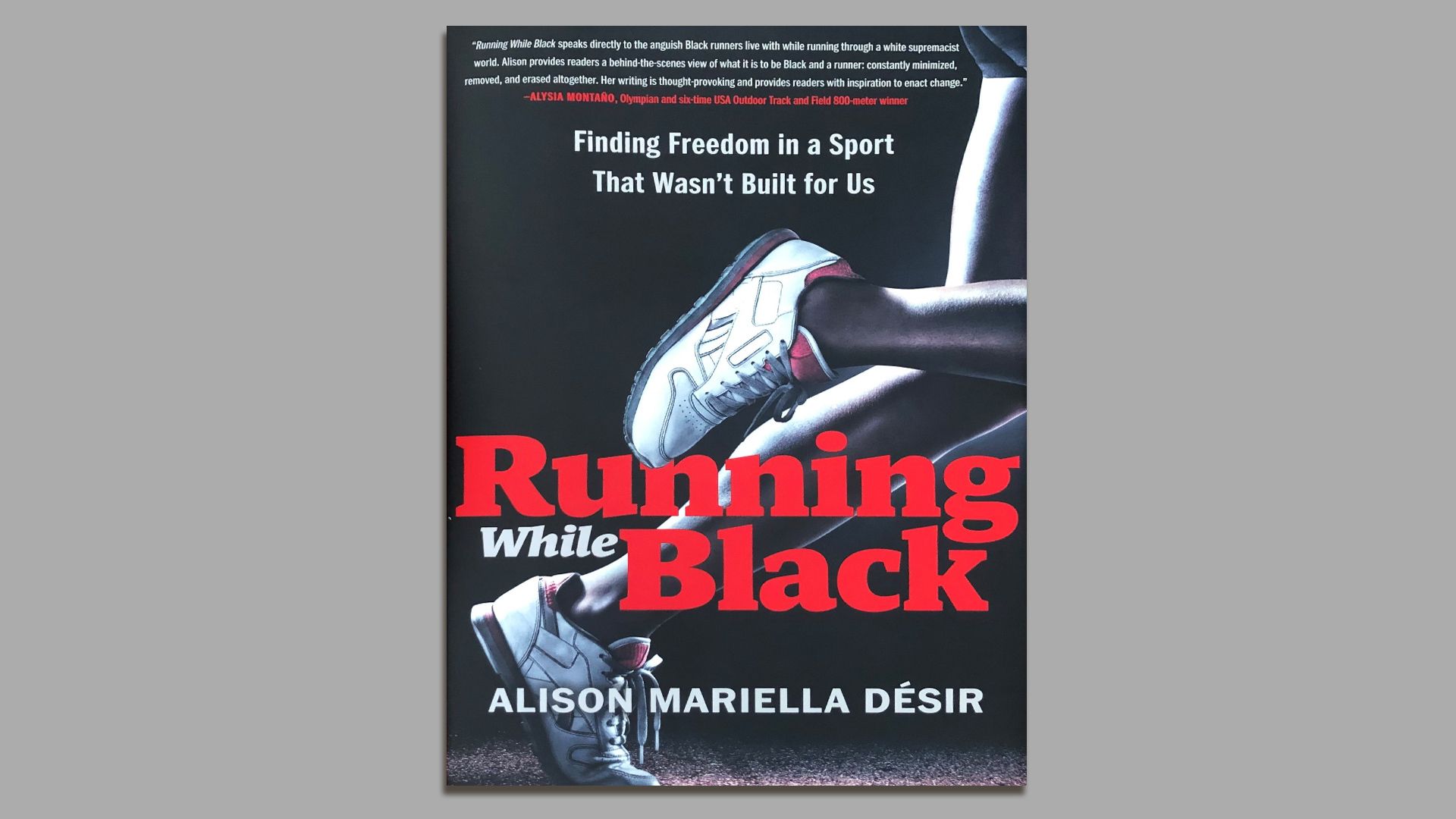A new book is seeking to raise awareness of racism in the act of running, lack of inclusion and racial profiling toward Black people who run.
Why it matters: The murder of Ahmaud Arbery in coastal Georgia in 2020 reinforced a fear author Alison Désir and many other Black people who run have: they’re not safe even during the most basic of human exercises.
- “Running While Black: Finding Freedom in a Sport that Wasn’t Built for Us,” released in October covers Désir's experience of running as a Black woman and that of other Black runners.
By the numbers: Black people represent 7% of the over 5,500 runners who responded to the global runner survey conducted in April and May of this year by the nonprofit organization Running USA.
- Of those who responded to their survey, 60% said they are white, 20% are Hispanic, 5% are Asian, 2% are American Indian or Alaska Native and 2% are mixed race.
Background: Désir tells Axios she got her idea for the book after writing about her experience with running and listening to what other Black people shared. Their experiences differed from white runners' experiences.
- Black people in recent history have been stereotyped at power sports like football and basketball and not in other fields like running, which tends to be portrayed by white people, Désir writes in the book.
- Brands, stores and events in the running community failed at diversity, equity and inclusion after the murders of Arbery and George Floyd, Désir writes.
- They failed to pay ambassadors of color for representation and didn’t create a strategic plan or staffing people to put their commitment into action.
The book, though, “allows them to lean in and really understand where there’s a lack of equity and understand what it’s like to move through space as a Black body,” Désir tells Axios.

The intrigue: Running groups aimed at inclusion are growing in places like Los Angeles, North Carolina, Atlanta and other areas with large Black populations.
- James Hale, a former captain of running group Black Men Run’s Atlanta chapter, tells Axios the group has expanded in members partly because of their participation in races. Black Men Run, founded in July 2013, now has 7,000 members in 50 chapters within the U.S., along with Paris and London.
- In group runs safety is a factor, said Hale, but adds running together is “more about the camaraderie, a chance for a fellowship and bond because outside of that, we still do our individual solo runs so it doesn’t replace anything.”
Yes but: Research into the lack of Black women running is nearly nonexistent, said Tiffany Chenault, a sociology professor at Salem State University, who in 2015 started looking into the topic as she traveled to run.
- “A lot of times when we talk about women running [it] always equals white,” Chenault tells Axios. “When articles talked about men, Black men, it was in regards to race but not those intersections.”
- Safety, access to running, and costs are among the things impeding Black women's participation in the sport, said Chenault, who is working to publish her findings in a book.
Go deeper: Making the outdoors safe for people of color







